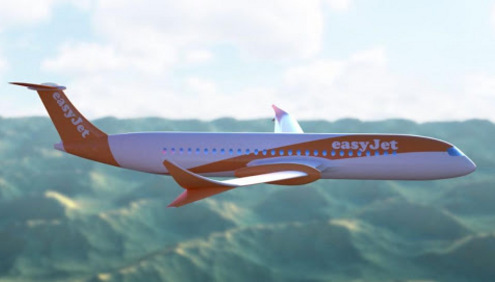
LONDON, 2017-Sep-29 — /Travel PR News/ — easyJet, Europe’s leading airline, today outlined a strategy to progressively decarbonise and reduce noise from aviation operations.
A collaboration with US company Wright Electric will support the goal for short haul flights to be operated by all-electric planes. Wright Electric has set itself the challenge of building an all-electric commercial passenger jet capable of flying passengers across easyJet’s UK and European network within a decade.
The new Airbus A320 neo aircraft will bring significant environmental and operational benefits – up to 15 percent saving in fuel burn and CO2 emissions, and a reduced noise footprint of 50 percent on take-off and landing providing a benefit to airport neighbourhood communities.
easyJet is also introducing new electric, towbarless aircraft tugs and it was announced that a partnership with Safran to trial e-taxi hydrogen fuel cell technology will be implemented in the coming months in what will be a revolutionary zero emissions taxiing system for its aircraft.
Since 2000, easyJet’s emissions have reduced by over 31% per passenger kilometre in 2016. easyJet has a carbon emissions target of 72 grams by 2022, which would be a 10% reduction from today’s performance and a 38% improvement from 2000.
Finally, easyJet announced it will offer inflight entertainment for the first time with ‘Air Time’- offering passengers prime time content on their devices for free.
For further information, please contact the easyJet press office on 01582 525252 or log onto easyJet.com. Please see press releases below.
SOURCE: EASYJET PLC
